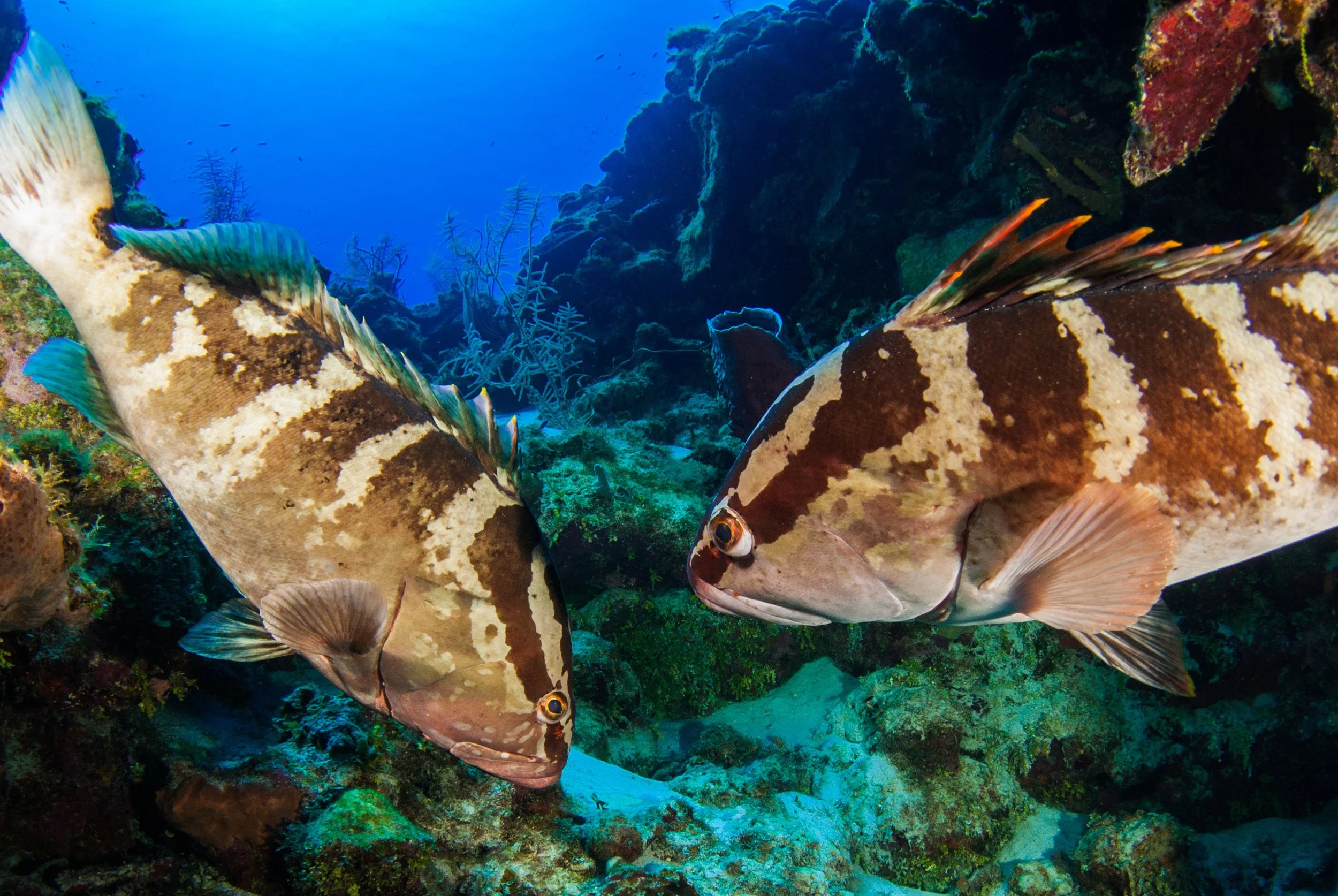Scientists Offer A Glimmer of Hope With Strategies For Saving Coral Reefs
It is likely that coral reef interventions will soon be available for use in the USVI to support the survival of coral reefs in the face of thermal stress, disease, pollution, and ecological change.
Two Category 5 Hurricanes in Two Weeks Reveal Insights on Critically Endangered Sea Turtles
When Hurricane Irma struck St. Thomas in September, 2017, eleven hawksbill sea turtles, fitted with acoustic transmitters as part of a long-term research project, were living within Brewers Bay on St. Thomas’ west end. What came next was simply amazing!
Here's Why Scientists at UVI Think We Should Care About Native Seagrasses in the Territory
“We are really concerned about sea grasses declining all over the globe, actually disappearing,” says Edwin Cruz-Rivera, associate professor of biology at the University of the Virgin Islands and recipient of a NSF Track 4 grant.
The Secret Life of Nassau Grouper Revealed Using Advanced Technology
Groupers, and a wide variety of other reef fish such as snappers, triggerfish and grunts, migrate long distances from their home sites to certain locations for spawning events which take place in large groups, or aggregations.




